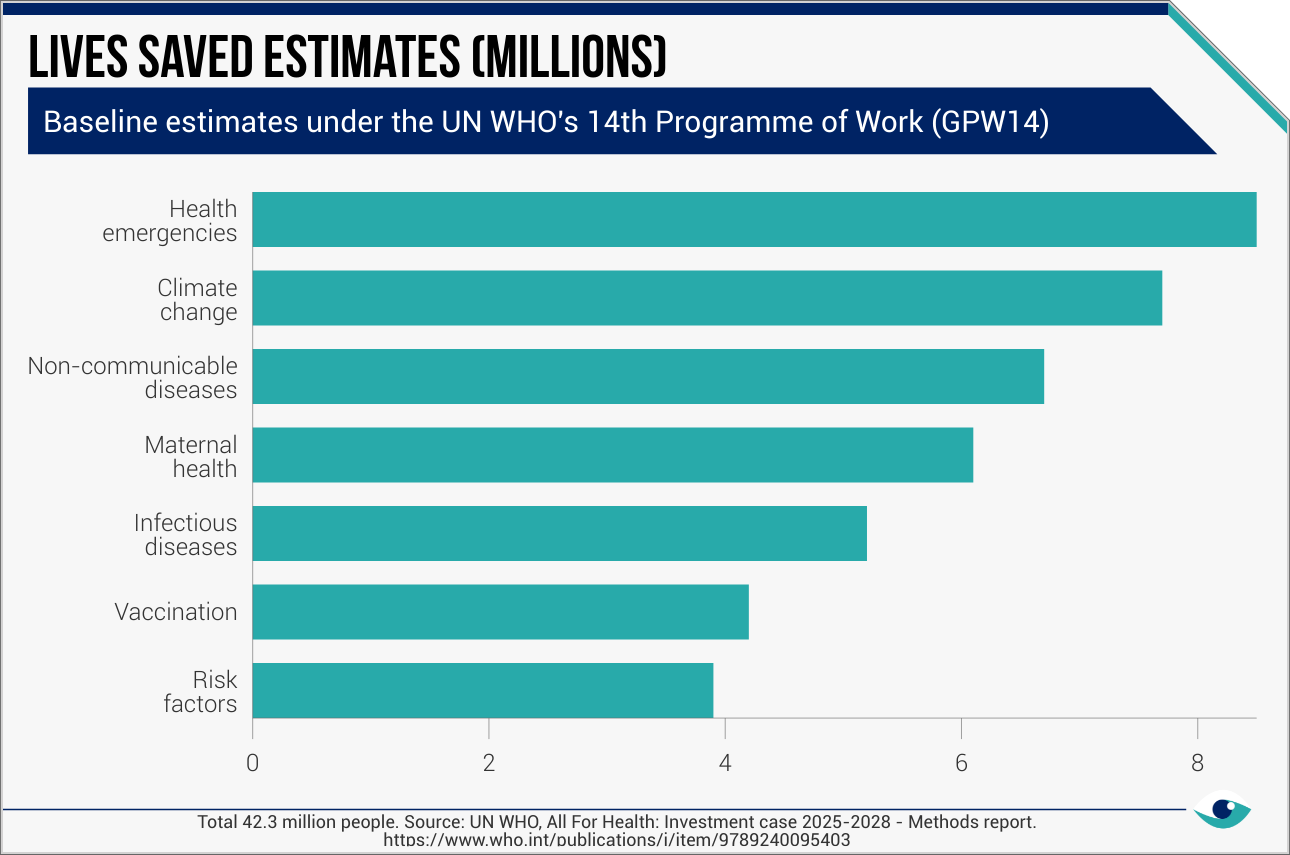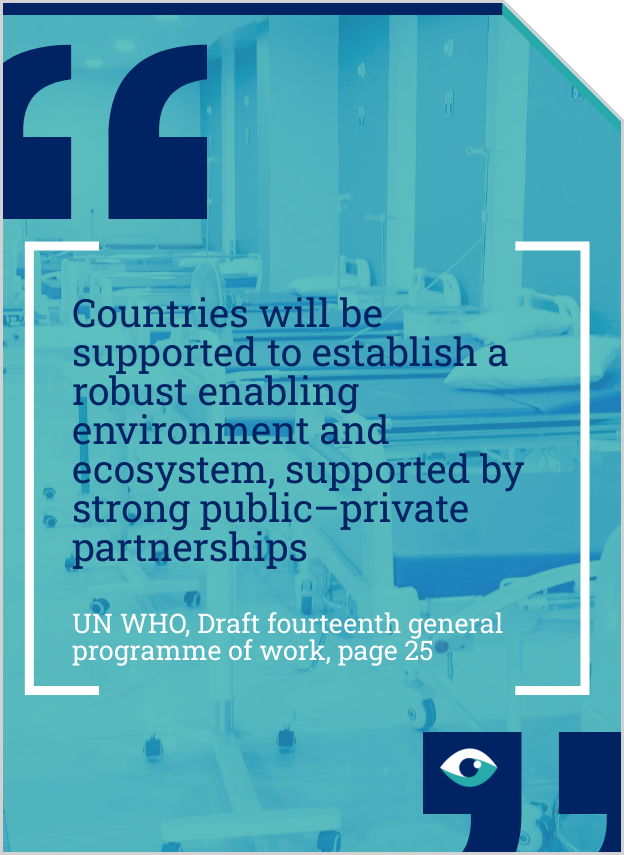In mid-2024, the World Health Organization (WHO) launched its first-ever investment round, aiming to mobilise USD 7 billion over four years to address overlapping global challenges such as climate change, disease outbreaks, and the increasing burden of non-communicable diseases. The WHO argues that sustainable and predictable funding is essential for the effective functioning and scaling of health initiatives. In addition to an appeal to WHO member states and multilateral development banks, the WHO is also seeking contributions from philanthropic and private-sector partners to increase the economic and health returns on investment by the public sector.

Investing in sustainable health for long-term benefits
The UN WHO seeks sustainable finance to mitigate risks and support climate-resilient health systems
Finance
Health (all industries)
AT A GLANCE
As part of its first investment round, the UN WHO is seeking investment in its sustainable initiatives for economic, health and environmental gains.
This opportunity is crucial as it addresses urgent global challenges like climate change and disease outbreaks.
In the long term, it ensures predictable funding and supports resilient health systems worldwide.
The investment case
Investing in WHO initiatives, such as the Alliance for Transformative Action on Climate and Health (ATACH), can yield major economic returns. UN research shows health gains valued at USD 35 return for every USD 1 invested in WHO interventions. The UN WHO estimated this return on investment based on a collaborative research project with external academic organisations, comparing the net present value of the cost of the UN WHO against the public value of associated health gains.
Health outcomes
Sustainable funding is crucial for achieving positive outcomes in pursuit of the health-related UN SDGs, and the so-called Triple Billion targets, which anchored WHO policy and measurement under its Thirteenth General Programme of Work (GPW13). Under its current draft Fourteenth Programme of Work (GPW14), the UN cites progress in eliciting commitments to increase member states contributions to 50% of the 2022–23 base budget, though the investment round is being organised to fill a sizeable gap.

Environmental gains
The UN WHO emphasises the need for climate-resilient health systems, regarding facilities, training and early detection of threats. The notion of climate-resilience also extends to renewable energy use by health facilities, including solar electrification. The WHO is also working with a core group of multilateral development banks to provide a new, coherent approach to financing health, particularly in the Global South, based on national assessments of their local context and needs.

Future health financing
Predictable funding practices are essential for the long-term future of the WHO. However, despite widespread recognition of current funding limitations, a renewed appeal for more reliable funding is at the heart of GPW14. Although current fundraising is focused on member states, the UN WHO hopes that, by widely promoting its current investment round, it may also encourage philanthropic and private sector capital to contribute to the long-term sustainability of health systems.
